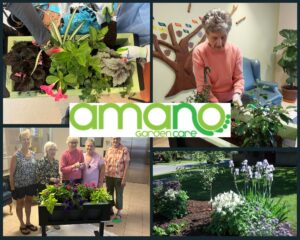What does Ottawa Language Access do?
Ottawa Language Access (OLA) was created to bridge the language barrier gap faced by Limited English and French Proficient (LEFP) clients requiring access to a range of extended health care services. By facilitating increased access for LEFP clients to professionally trained health interpreters, we hope to achieve accessible and equitable health services and continuous care for these population groups.
Where are you located and when was the social enterprise started?
We started our social enterprise in January 2019 and are co-located in the same building as the Catholic Centre for Immigrants (CCI), a building which houses various social and settlement services designed to assist newcomers integrate and settle into the Ottawa community. This unique setting has aided our program as we can work collaboratively with other agencies and programs to support newcomers and increase advocacy and awareness around the challenges faced by newcomers, language being amongst the key challenges.
What was the inspiration behind creating the social enterprise?
OLA was implemented in 2015, and steadily grew over the years. We went from providing interpretation services to 10 programs to currently supporting 32 programs in the region. By 2017-18 we experienced an increase in demand so much so that we ran into a deficit six months into the fiscal year. We reached out to our funders and requested a one time grant to sustain services, but understood at the same time that we had to think creatively to find a viable solution. We connected with CSED who helped us develop a feasible business plan to remodel OLA as a social enterprise. We needed to think creatively and establish a model which would help us grow and scale services on the one hand but at the same time not jeopardize the quality of services we provided in the community.
Tell us about the people you serve? How do they typically find you?
The clients we support are diverse; they are individuals from various countries speaking different languages, of different socio-economic standing, education and ethic religious backgrounds. The common thread is that they are individuals who do not have proficiency in English/French.
Language barriers can significantly impact a client’s ability to access health services, and this can prove to be detrimental to their well-being. Our aim has been to target health agencies and services in the community that provide healthcare to LEFP population. Our objective is to help reduce the negative impact of language barriers gap faced by Limited English and French Proficient (LEFP) clients requiring access to a range of essential health care services. By facilitating access for language support to LEFP clients and increasing access to professionally trained health interpreters, we hope to achieve accessible and equitable health provisions and continuous care within this population group.
OLA is in the unique position of being embedded in the healthcare sector because we are hosted by a community health centre. Being part of Somerset West Community Health Centre has enabled us to understand the needs of the sector. By providing client-centered service, OLA connects clients to resources in the community and delivers high quality interpretation services that make a positive impact within the community.
What inspires you and your team to do the work you do?
We hear on a daily basis the stories of things gone wrong when individuals could not communicate: people prescribed wrong medications, treatment plans, or diagnosed with the wrong illness. It can have a harmful impact on an individual’s health. Having a program that caters to the needs of this population and provides access to interpretation services and aids these clients is immensely rewarding.
Our ethos is founded on the belief of “prevention is better than cure”. To this end, interpreters play an integral role in bridging the communication gap, enabling access to culturally appropriate services. To connect LEFP individuals to the right resources in a timely manner is beneficial for the LEFP individuals and is immensely rewarding for us. We see the tangible, meaningful impact of our work being done within the community.
What challenges were you facing when you came to CSED?
We understood that we needed to change the way we deliver our services but how to do this and how to create a viable business model was a challenge. We faced challenges with marketing and strategic branding of our services. We operated in the non-profit realm and so operating a business was a learning curve.
How has CSED helped you?
CSED was very helpful in mapping out the journey of creating a social enterprise. They connected us with leading market experts at different stages of the development. With their help we mapped our business model and customer validation, developed a strategic marketing message and worked on forecasting our projected growths and financial planning strategy. Another important component was to ensure that we set a price point for our services that was the lowest in the city, while ensuring we are able to pay our interpreters a competitive rate. This was something that our coaches helped us with immensely.
What has been your greatest learning from CSED’s coaching?
Working closely and getting one-on-one individualized support throughout the process. CSED provided insight and expertise, asked us engaging questions that made us go back and think things through in a different light and aided us with the tools and resources needed to implement creative solutions to the challenges we faced. As mentioned before, coming from the health sector and from the non-profit world,we had very little knowledge of implementing a social enterprise which has elements of the private sector built into it. This shift in thinking was not only a very beneficial learning but also empowered us to take things to a whole different level. I think more individuals from the non-profit world should be thinking this way.
What challenges do you face day-to-day?
We are a small team, so there are challenges. Often we have two individuals managing hundreds of interpretation requests. Logistics and staff shortages can be a challenge as well. Often with smaller teams there are various tasks that need to be completed and managed which can impact the time allocated to other tasks. Nevertheless we have managed to grow OLA in the past 3 years to scale up services, bring on 14 new programs within the last 5 months, generate revenue and increase our internal interpreter personnel team to satisfy the demand from the community.
What are some of the lessons you and your team have learned along the way?
We have learned to be flexible and agile to the changing landscape, by working in collaboration with our clients and building on the success of the program thus far. We hope to increase services in the community and provide quality interpretation services to the most vulnerable members of our community. We always put LEFP individuals first and are concerned with how they are served. However, after our coaching sessions with CSED, we also learned to appreciate that we needed to cater to our clients more, as they were the ones who not only would purchase our services, but also the ones that will utilize OLA to serve the LEFP individuals. We learned how to understand their needs and journey in relation to OLA.
What is OLA’s vision/mission moving forward?
OLA’s mission is to increase access to equitable linguistic support to LEFP individuals by providing professional interpretation services within the community. Our hope is to grow the program even more, hire two more full-time employees, continue to scale up our client list of new programs and train and contract more health interpreters to increase our internal capacity to meet the growing language demands.
What makes you most proud?
We are proud of the support that we have been able to extend to LEFP clients. The ability to communicate and have a voice is priceless and can be detrimental when individuals are not supported with the tools they need to be able to express themselves. Your voice is a powerful tool and no one should be denied the ability to be heard. By providing interpretation services within the community, OLA is enabling clients with the opportunity to be heard, to have equitable access to language services they can utilize to get the most optimal healthcare services and positively impacting their well-being and the well-being of their communities.
We are also proud of our ability to hire and employ health interpreters, many who are newcomers themselves. Our interpreter personnel are made up of individuals with various medical backgrounds (physicians, surgeons, neurologist, and speech pathologist) who because of licensing and certifications have taken on new careers upon arriving in Ottawa. These interpreters play a vital role and are part of the healthcare team in a different capacity then what they may have practiced in their countries of origin, and OLA facilities a new means of employment for them.
What keeps you up at night?
The constant demand for interpretation and the need to respond quickly to those requests can certainly be demanding. It definitely makes our work environment a fast-paced one!



